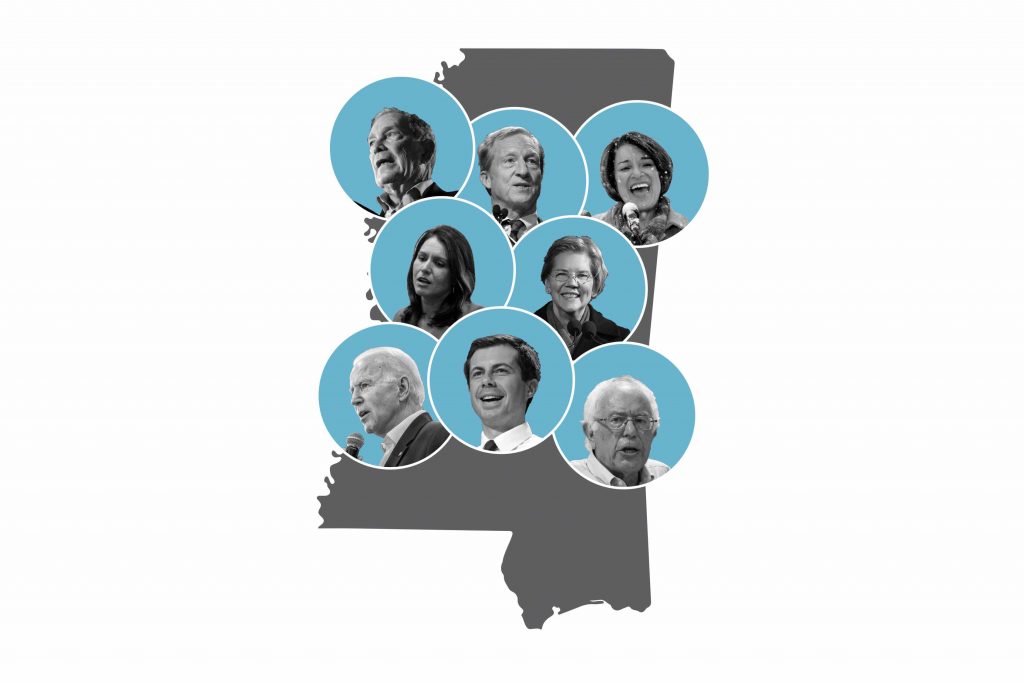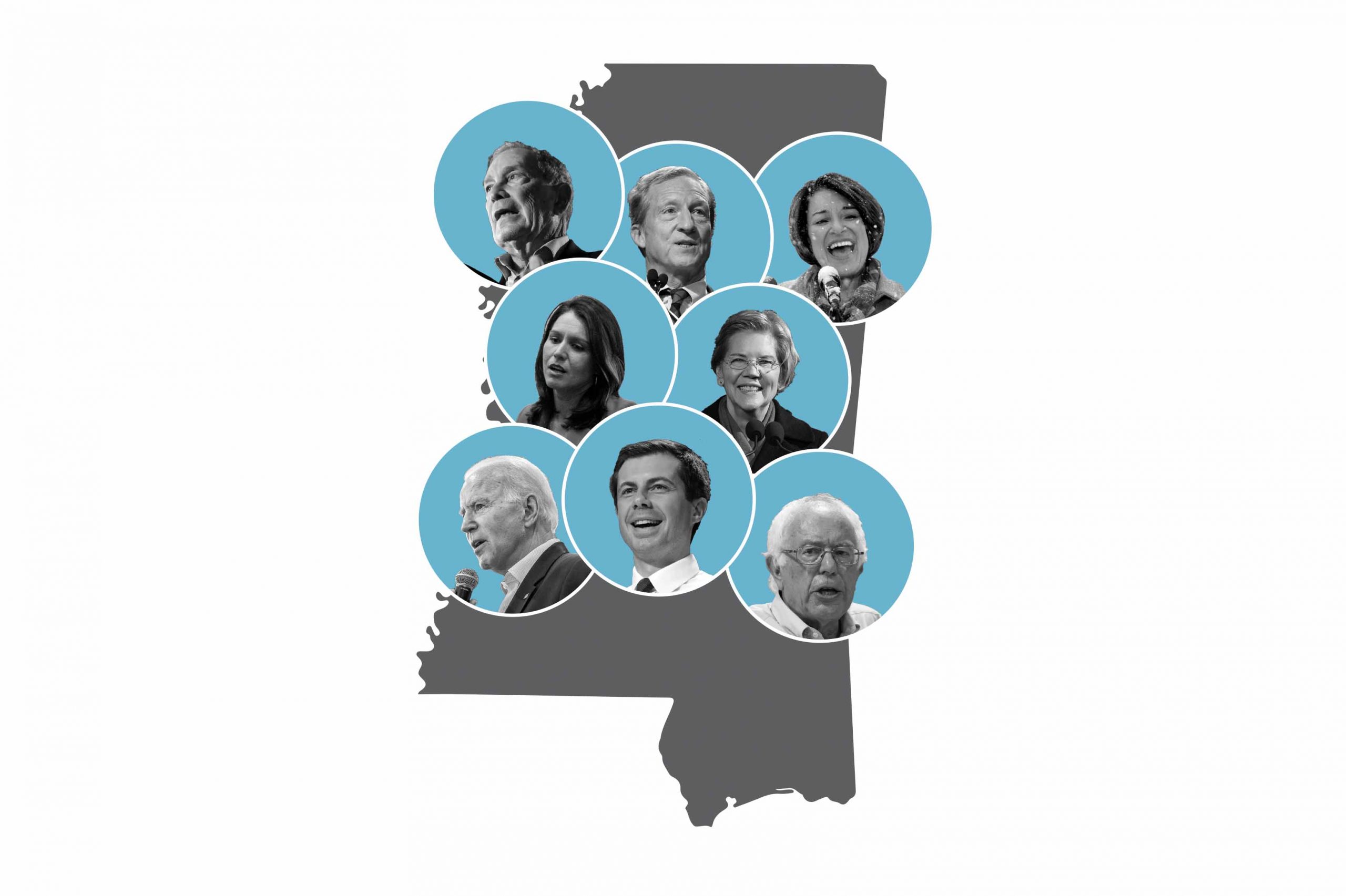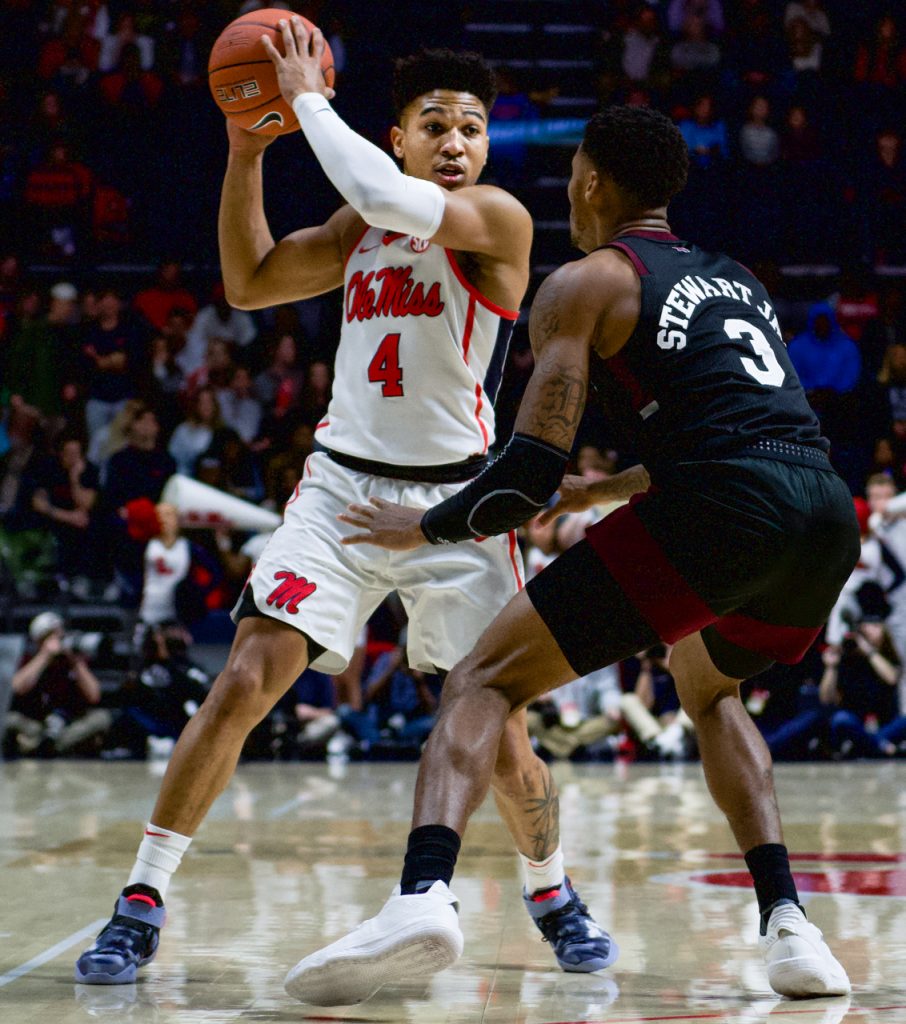
In just over 20 days, Lafayette County voters will cast their ballots in the Democratic primary to decide which candidate will take on President Trump in November. The county will also hold primaries for the U.S. Senate and the House of Representatives elections.
Just two states – Iowa and New Hampshire – have held their primary elections, and 16 more will do so before Mississippians head to the polls with five other states on March 10. On Saturday, Lafayette County Democrats met at all 18 county precincts to caucus, or discuss the vote.
“The precinct caucuses here are really just an organizing tool,” Cristen Hemmins, chair of the Lafayette County Democratic Party, said. “It’s a way of trying to get input from folks at the most local level that makes its way up to the state party level, but it really doesn’t have a lot of bearing on the actual primary.”
Only four states still use an official caucus to choose the Democratic nominee. Others have switched in recent years to a government-run primary system, in which the local elections commission administers the election like every other state race. This helps prevent some criticisms of the caucus system, which has voting locations different from the normal precincts and often are not open all day like in a general election.
The primary will happen during the university’s spring break, so students who do not plan to stay in Mississippi over the break cannot vote in person in the primary. Katie Davis, president of the College Democrats, said this led the club to promote absentee ballots, so students who are registered in Mississippi can vote, even if they leave for the break.
“We’re thinking most (students) won’t be here in Oxford. If your registration has changed (to vote in Mississippi), it would be easier (to vote absentee) if you’re gone, so you can vote at home,” Davis said.
The Lafayette County Circuit Clerk’s office, which collects absentee ballots, expects an influx of them for this primary because of the break according to Circuit Clerk Jeff Busby. The office has already collected 60 ballots and expects between 400 and 500. In addition to absentee ballots, College Democrats will provide rides to polling places for students on campus.
After the Iowa and New Hampshire primaries, Pete Buttigieg narrowly leads ahead of Bernie Sanders with 22 delegates to 21. Jonathan Klingler, political science professor and expert on the American presidency, said that this opens the door for a candidate who is not even in the top five.
“The Iowa caucus may have an indirect effect on the primary in Mississippi by preventing the
emergence of a (clear) frontrunner before March 10, which helps create an opening for Mike
Bloomberg,” Klingler said. “Bloomberg increased his spending dramatically after Iowa, and that
has likely led him to increase his presence in Mississippi.”
Bloomberg, a billionaire media mogul and former mayor of New York City, opened a
campaign office in Oxford recently. It is one of three offices in Mississippi, with Gulfport and Jackson offices opening last week.
Klingler stressed that even if Bloomberg or another candidate is not the frontrunner by March
10, it likely will not affect the way Mississippi votes.
“A recent study of primary voters’ preferences found that voters do not tend to change their
preferred candidates to favor candidates who win,” Klingler said. “If later states tend to favor
the frontrunner, it appears to be because other candidates have dropped out by that point.”
In addition to the presidential primaries, there are primaries for U.S. Senate and the House
of Representatives. Democrats will select a candidate to face incumbent Republican Cindy
Hyde-Smith. The most high-profile primary candidate is Mike Espy, the former U.S. Secretary of
Agriculture, who lost to Hyde-Smith in the 2018 Senate special election.
Ole Miss law professor Antonia Eliason is the only declared candidate in the Democratic
primary for U.S. House District 1, taking on incumbent Republican Trent Kelly. That District covers Lafayette County and the rest of northeast Mississippi.
Hemmins criticized Mississippi’s use of the “open primary” system, in which voters can participate in either party’s primary, since the state does not recognize party affiliation in the voter rolls. There are 15 other states that have outright open primaries, and 20 have limited open primary elections.
The Democratic presidential primary has had issues so far. In the Iowa caucus, the application, chosen by the state Democratic party, to report the votes did not work properly. This delayed the results for days and prompted calls for a recanvassing of the questionable vote counts.
Hemmins remains optimistic that the data was largely unaffected and stressed that a similar issue will not happen in Mississippi because it does not use an official caucus vote.
“The data, by and large, was good that they collected,” Hemmins said. “But, I hope folks realize that what happened there is completely different from our caucuses and our primary.”
Mississippi primaries have had problems as well. In the 2019 Republican primary for governor, a polling machine malfunction at the Oasis Church polling location in Oxford was changing a voter’s selection from candidate Bill Waller to now-Governor Tate Reeves.
Busby, who took office in January, will oversee his first election in the March primary. He said the machine malfunction was a calibration issue and that no incorrect votes were cast. When the voter reported the machine error, it was immediately taken out of service.
“The machine prints out your ballot at the end and says, ‘Is this who you wanted to vote for, yes or no?’ or disregard the ballot.” Busby said. “No one just cast a vote for Mr. Reeves that did not want to.”
After Baretta Mosley, the previous circuit clerk, served 22 years in the position, Busby said he feels a heightened sense of responsibility to make sure the primaries go as planned in March.
“There’s a little bit of excitement and a little bit of nervousness,” Busby said. “You don’t want anything to go wrong. You want things to go smooth, but no matter how hard you try, there’s always small problems. You hope they don’t disrupt the voting process.”














